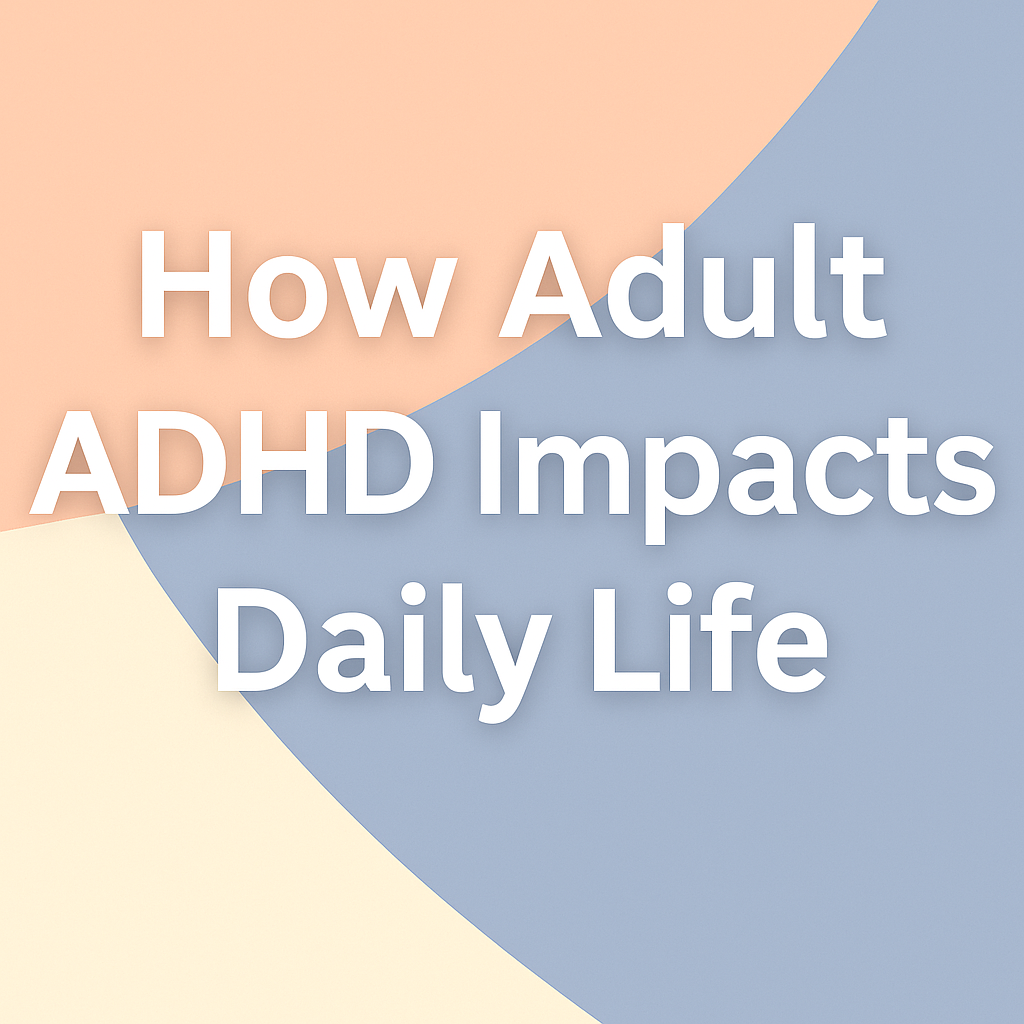Website designed with the B12 website builder. Create your own website today.
Start for free
Disclaimer: I’m not a medical professional. I’m a mental health enthusiast who shares what I’ve learned through research, lived experiences, and conversations with people navigating ADHD. If anything here resonates with you, please consider reaching out to a qualified healthcare provider for proper evaluation and support.
Ever sit down to write an important email… only to realize 20 minutes later you’ve been deep in a rabbit hole of unrelated tabs?
For adults with ADHD, this isn’t occasional distraction—it’s a daily pattern shaped by differences in executive function, the brain’s “control center” for planning, prioritizing, and task-switching.
Research suggests that up to 60% of adults with ADHD experience significant executive function deficits—making it harder to organize tasks, remember deadlines, and follow through on plans (PAR, Inc.).
In the workplace, ADHD can make the grind feel relentless.
A study in the Journal of Occupational Rehabilitation found that employees with ADHD face higher rates of emotional exhaustion and burnout, often due to constant mental effort spent trying to stay on top of deadlines and organization (PMC).
Jobs heavy on repetitive tasks, precise details, or rigid structure can be especially draining—not because people with ADHD lack ability, but because these environments don’t match how their brains thrive (Verywell Mind).
On the flip side, in roles that reward creativity, problem-solving, and quick thinking, ADHD traits can be an asset. One AP interview with adults thriving in unconventional jobs put it perfectly: “Once I stopped trying to fit into the mold, I realized the mold wasn’t made for me” (AP News).
While ADHD is typically defined by attention and activity patterns, emotional dysregulation is a big part of the lived experience.
This is the difficulty in managing emotional responses—leading to more intense reactions, quicker frustration, or feeling overwhelmed in conversations (Wikipedia – Emotional Dysregulation).
These moments aren’t about overreacting on purpose—they’re the result of differences in how the ADHD brain processes stimulation and emotional cues.
One study noted that having even one “emotionally attuned” friend or partner—someone who can offer structure and patience—significantly improves coping and reduces conflict (PMC).
ADHD can make household management feel like a never-ending game of whack-a-mole. Dishes pile up, laundry stays in baskets, and bills are remembered only when the late notice arrives.
This isn’t laziness—it’s the difficulty of task initiation and working memory. Without external tools or routines, everyday tasks can easily slip off the radar (Therapy Group DC).
When you’re working twice as hard just to keep up, it’s easy to fall into the “I’m not trying hard enough” spiral. Over time, this erodes confidence and increases the risk of mental health struggles.
It’s no surprise that up to 80% of adults with ADHD have co-occurring anxiety or depression (ADHD BC).
Living with ADHD doesn’t mean living in constant overwhelm. Here are a few practical, low-pressure strategies:
In Part 3, we’ll look at how adult ADHD is diagnosed—what to expect in an evaluation, how providers rule out other conditions, and why getting an accurate diagnosis can feel like finally finding the missing puzzle piece.
Takeaway for Today:
Adult ADHD isn’t just “not paying attention.” It’s a unique wiring of the brain that shapes how we work, connect, and care for ourselves. The more we understand it, the more we can replace self-blame with self-support.